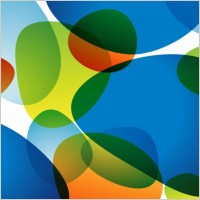-
Many Ordinary Meds Cause Depression; Public Trust in Pharma Hits New Low

For years, I’ve been writing about the medical system’s self-feeding mechanism:Give a patient a drug to treat his symptoms; the drug causes new symptoms, which are diagnosed as a new illness; and then new drugs are given, and those drugs cause still more symptoms, which in turn are diagnosed as a new condition…on and on…
-
OMNS – Niacin Treatment of Schizophrenia Recent Research Confirms Abram Hoffer’s Original Work

(OMNS Dec 2, 2017) Schizophrenia is a devastating and complex disease that can include a variety of specific clinical conditions. Drugs to treat schizophrenia have not advanced much beyond the 1960s; in many cases they are not very effective, and they have severe side-effects. The problem is that the cause of schizophrenia is unknown, and…
-
Dementia – can we educate and reduce risk?

At the inaugural Swisse Preventative Health Symposium held in Melbourne last Friday, I was privileged to hear a fascinating address by Professor David Smith, Professor Emeritus, University of Oxford on “the role of nutrition in the prevention of cognitive impairment”. He classes dementia as a disease – not an inevitable part of ageing and certainly…
-
Orthomolecular News – Niacin Rescues Cannibalistic Hamsters The Historical Significance of 1940s Mandatory Niacin Enrichment

Orthomolecular Medicine News Service, February 28, 2017 by W. Todd Penberthy, PhD In a newly published research study, Tissier and colleagues at the Universite ‘ de Strasbourg, France, identified wild hamsters that were eating primarily corn monoculture diets and exhibiting siblicide and maternal infanticide. Cannibalism was one of the theories for the decline of their…
-
Meditating on our health

Editor’s Note: It is refreshing to see information published by an authoritative Australian source that promotes non-drug therapy, or therapies that will support other forms of treatment, and be supported by evidence. As pharmacists we are often aware of various forms of treatments (including meditation) that are supported by evidence, but we still have to…
-
Leadership, Future Direction, Public Health and Triage Services

Most pharmacists recognise the need to expand their focus from dispensing to something wider. Community pharmacy is the most visible “face” of pharmacy, but its leadership struggles to keep its members focused on creative pathways that utilise the natural advantages of a community pharmacy – convenient location, health professional availability and access, a “core” duality…
-
Novel mHealth app detects depression

Passive app requires ‘no effort on the part of the user’ Feeling down? Your smartphone will most likely know before you or your doctors do, after a recent study showed promise for an mHealth app that detects depression and monitors at-risk populations. Researchers at Northwestern University’s department of preventive medicine have developed a novel mobile…
-
New Study Creates a Guide for Pharmacy Clinics

As pharmacy moves slowly into the provision of clinical services, their design and delivery through specialised clinic formats will be a major consideration. Growing incrementally in need, primary health care is a traditional area for pharmacy that needs to build to a provider status. A study published in The Lancet, could help because it has…
-
“I never thought I would need to call PSS…..”

No-one plans to need to seek support, sometimes things just don’t go the way we planned. When Australian pharmacists, pharmacy interns or students need help the volunteers from the Pharmacists’ Support Service (PSS) are there on the other end of the phone. Just call 1300 244 910 any day of the year between 8.00am and…
-
Good news! A compound in red wine may help prevent memory loss

Scientists have found that resveratrol, an antioxidant found in red wine, peanuts and some berries, isn’t just good for our hearts – it can also help us fend off memory loss as we age. The results suggest that the compound may even be able to help patients with severe neurodegeneration, such those with Alzheimer’s disease.…